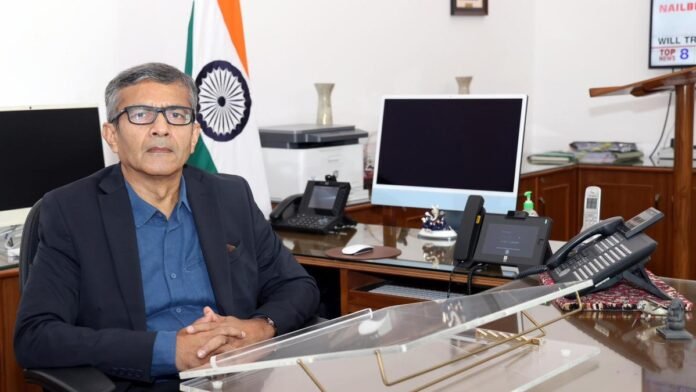New Delhi: Defence Secretary Rajesh Kumar Singh announced that India’s defence industry is poised for significant expansion, driven by reforms and public-private partnerships. During a recent conclave, he emphasised the government’s commitment to creating a technologically advanced and combat-ready force capable of addressing modern warfare complexities. This aligns with the broader initiative of “Aatmanirbhar Bharat,” which focuses on self-reliance in defence production.
The defence budget is set to rise from ₹6.21 lakh crore to ₹6.81 lakh crore in 2025-26, a 9.5% increase. Over the next decade, India plans to allocate approximately $30 billion annually for modernisation efforts, with 75% earmarked for domestic procurement.
Defence exports have surged to ₹21,000 crore, marking a nearly 30-fold increase over the past decade. Singh noted that the current industrial ecosystem includes 16 defence PSUs, 430 licensed companies, and around 16,000 MSMEs, which are critical to this growth.
The Ministry of Defence aims to streamline acquisition processes and reduce entry barriers for new technologies and players in the market. This approach is intended to foster an adaptive and agile defence industrial ecosystem capable of responding swiftly to evolving warfare needs.
Singh highlighted the relaxation of Foreign Direct Investment (FDI) policies and industrial licensing procedures as vital elements for propelling the domestic defence industry forward. The government has declared 2025 as the “year of reforms” to enhance efficiency in defence procurement and production systems. This strategic shift towards enhancing domestic capabilities and fostering collaboration between various stakeholders is expected to position India as a significant player in the global defence landscape.
The expansion of India’s defence industry is significantly driven by key public-private partnerships (PPPs) that aim to enhance indigenous production capabilities and foster innovation.




